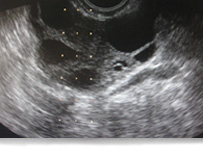Ovulation Induction
 Ovulation induction is the stimulation of the ovaries to produce multiple follicles, each containing an egg.
Ovulation induction is the stimulation of the ovaries to produce multiple follicles, each containing an egg.
Ovarian stimulation involves the use of fertility medications that promote the simultaneous maturation of multiple follicles. During the ovarian stimulation stage, the woman’s progress is monitored with hormone testing and ultrasound.
Ovulation inducing agents are either in pill form (Clomiphene Citrate) or injectable form (Gonadotropins). A Fertility Specialist also known as a Reproductive Endocrinologist prescribes such medication. They are usually given by self-injection. The Fertility Specialist might recommend an adjunctive therapy when using gonadotropins, such as ovarian “down-regulation” with a drug called Lupron to get a better response from the ovaries.
If a patient is using daily injections of gonadotropin for ovulation induction, she needs frequent monitoring with vaginal ultrasound. A nurse coordinator assigns a date for a vaginal ultrasound and blood test around the time the period starts. In a typical stimulation protocol, daily injections of human gonadotropins, is started after the menstrual period. These medications are concentrated forms of the natural hormones, which stimulate ovulation in a normal menstrual cycle.
The day gonadotropins begin is stimulation day 1 or “stim day 1” regardless of when it occurs after the period. The follicles are egg-containing areas inside the ovary. There are hundreds of thousands of follicles in each ovary, but during any one stimulation cycle only a few will accumulate fluid and grow large enough to appear on an ultrasound exam. Only the large follicles hold mature eggs. Each follicle usually contains one egg surrounded by granulosa cells. Granulosa cells surround the egg, produce the follicular fluid, produce estrogen, and support the egg in its development.
Gonadotropins cause several follicles to enlarge at once. The number can vary from one or two to 30 in some women. Women who are very sensitive to the medication need only a small amount of gonadotropins, while those who are resistant require more. When ultrasound examination and estrogen levels suggest that the follicles are large enough and the eggs are mature, patient will be advised to stop gonadotropins and take one dose of human chorionic gonadotropin (hCG). hCG prepares the eggs for ovulation and fertilization. Egg retrieval is performed at about 36 hours after hCG, since ovulation normally begins about 40 hours after the hCG injection. The timing of hCG is critical, so it must be taken at the exact time you are instructed to take it.
OUR SERVICES:
Sperm DNA Fragmentation Ovarian rejuvination Thin Endometrial Lining PGS (PGT-A) & PGD (PGT-M) Cryopreservation / Fertility Preservation / Vitrification Egg Freezing / Oocyte Cryopreservation Sperm Cryopreservation Vitrification & Frozen Embryo Transfer Recurrent Pregnancy Loss IUI-Intrauterine Insemination Blastocyst Transfer Laser Assisted Hatching Follicular Monitoring TESA-Testicular Sperm Extraction PESA – Per Epididymal Sperm AspirationCopyright © 2024, Corion. All Rights Reserved.
Website is designed & developed by Phi Brands


